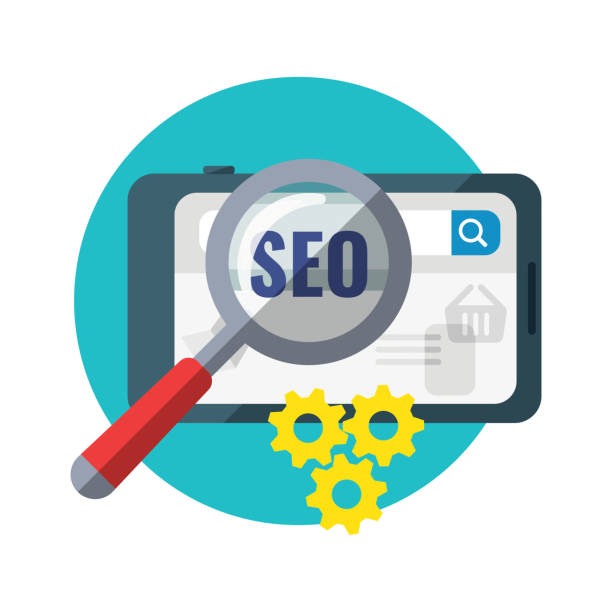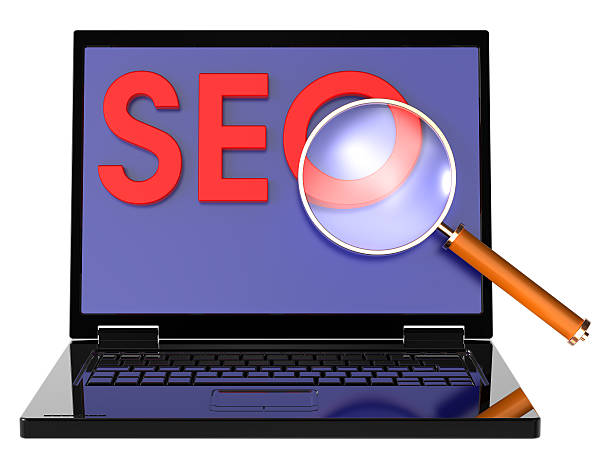What is SEO and why is it important?

What is SEO and why is it important?
SEO stands for “Search Engine Optimization.”
SEO is the process that helps your website rank higher in search engine results such as Google, Bing, and Yahoo.
This is done by optimizing various factors inside and outside your website.
The main goal of SEO is to increase the visibility of your website to users who are looking for products or services related to your business.
In other words, if someone searches for a term in Google that is related to your business, you want your website to appear as high as possible in the search results.
To achieve this goal, you need to make your website more attractive and relevant to search engines by using SEO techniques.
One of the most important aspects of #SEO is understanding how search engines work.
Search engines use complex algorithms to evaluate websites and rank them.
These algorithms consider various factors such as content quality, website structure, and inbound links.
By understanding these factors, you can design your SEO strategy to have the maximum impact.
The importance of SEO is significant for several reasons.
Firstly, SEO can dramatically increase your website traffic.
Organic traffic, meaning traffic that comes through search engines, is usually higher quality and more targeted, because users who come to your website through search are looking for information or products that you offer.
Secondly, SEO can increase your brand’s credibility and trust.
Websites that rank high in search results are typically considered credible and trustworthy sources.
Thirdly, SEO can reduce your marketing costs.
Compared to paid advertising, SEO can be a more cost-effective way to attract traffic to your website.
Finally, SEO is an ongoing process.
Search engine algorithms are constantly changing, so you need to continuously update your SEO strategy to maintain your top rankings.
Are you dissatisfied with the low sales of your online store?
Rasaweb is your solution for having a professional and high-selling online store.
✅ Significant increase in sales and revenue
✅ Easy and enjoyable shopping experience for customers
⚡ Get a free consultation from Rasaweb right now!
Keyword Research; The Foundation of SEO

Keyword Research; The Foundation of SEO
Keyword research is the process of identifying the words and phrases that users use to search for information, products, or services related to your business in search engines.
These words and phrases are called “keywords” and form the basis of your SEO strategy.
Without keyword research, your SEO efforts can be in vain, because you don’t know exactly what to target.
The goal of keyword research is to find words that are both relevant to your business, have high search volume, and have less competition.
In other words, you want to find words that many users search for, but few websites compete to rank for those words.
You can use various tools to conduct keyword research.
Some of the most popular keyword research tools include Google Keyword Planner, Ahrefs, SEMrush, and Moz Keyword Explorer.
These tools help you find search volume, competition level, and related keywords for each keyword.
In addition to using tools, you can also use other methods to conduct keyword research.
For example, you can pay attention to the questions your customers ask, visit online forums and social networks, and use Google’s search suggestions.
After you have created a list of potential keywords, you need to evaluate them based on relevance, search volume, and competition.
Keywords with the most relevance, search volume, and least competition should be prioritized.
Finally, use your keywords in your website content, including titles, meta descriptions, body text, and image tags.
Make sure you use your keywords naturally and in the appropriate context.
Overuse of keywords can lead to your website being penalized by Google.
Keyword research is an ongoing process.
You should regularly review and update your keywords to make sure they are still relevant and effective.
By conducting proper keyword research, you can increase your website traffic, attract new customers, and grow your business.
On-Page SEO; Optimizing Website Structure and Content

On-Page SEO; Optimizing Website Structure and Content
On-Page SEO refers to the set of actions you take within your website to improve your website’s ranking in search engine results.
These actions include optimizing website structure, content, HTML tags, and other internal elements of your website.
On-page SEO is one of the most important aspects of SEO, because it helps search engines understand what your website is about and whether it is relevant to the user’s search.
A well-structured website helps search engines easily find and index your pages.
Also, a website with high-quality and relevant content can attract users and keep them on your website for a longer period of time.
The most important elements of on-page SEO include Title Tags, Meta Descriptions, Headings, High-Quality and Relevant Content, URL Structure, Internal Linking, Image Optimization, Page Load Speed, and Responsive Design.
To optimize page titles, use relevant keywords and write attractive and concise titles.
To optimize meta descriptions, provide a short and attractive summary of the page content and encourage users to click on your link.
To optimize headings, use relevant keywords and organize the headings in a way that clearly shows the content of the page.
High-quality and relevant content is the heart of on-page SEO.
Your content should be useful and attractive to users, and it should also answer their questions.
Your URL structure should be simple and readable, and it should include relevant keywords.
Internal links help search engines connect your website pages to each other and understand the overall structure of your website.
Optimize your website images using ALT tags and reduce the size of images to improve page loading speed.
Page loading speed is an important factor in Google’s ranking.
A faster website provides a better user experience and is more likely to rank high in search results.
Responsive design means that your website automatically adapts to the screen size of the user’s device (such as a mobile phone, tablet, or computer).
Google gives higher rankings to responsive websites.
On-page SEO is an ongoing process.
You should regularly review and update your website to make sure it is still optimized.
By optimizing your website’s on-page SEO, you can improve your website’s ranking in search engine results, attract more traffic, and grow your business.
| On-Page SEO Factor | Description | Importance |
|---|---|---|
| Title Tag | The page title that is displayed in search results. | High |
| Meta Description | A short summary of the page content. | Medium |
| Headings | Main and sub-headings to organize the content. | High |
| Content | The main content of the page. | Very High |
| Internal Links | Links to other pages of the website. | Medium |
| Image Optimization | Optimizing images for speed and SEO. | Medium |
Off-Page SEO; Credibility and Link Building

Off-Page SEO; Credibility and Link Building
Off-Page SEO refers to the set of activities that are performed outside of your website, with the goal of increasing the credibility and reputation of your website among other websites and users.
These activities include Link Building, Content Marketing, Social Media, and Public Relations.
Off-page SEO helps search engines understand how credible and trustworthy your website is.
Websites that receive many links from other credible websites usually rank high in search results.
Link building is the most important aspect of off-page SEO.
Link building is the process of getting links from other websites to your website.
Links that you receive from credible and relevant websites are more valuable.
There are different methods for link building, including creating high-quality and shareable content, guest posting on other websites, participating in online forums, and building relationships with bloggers and journalists.
Content marketing is also another important aspect of off-page SEO.
By creating high-quality and valuable content, you can attract users and encourage them to share and link to your website.
Social media can also play an important role in off-page SEO.
By sharing your website content on social media, you can increase your website traffic and strengthen your brand’s credibility.
Public relations can also help you get links from credible news and media websites.
By performing appropriate off-page SEO activities, you can increase the credibility of your website, attract more traffic, and grow your business.
SEO is an ongoing process and you should regularly review and update your SEO activities to make sure they are still effective.
SEO is a vital process for making your business visible online.
With the right SEO strategy, you can improve your website’s ranking in search engines.
Doesn’t your current online store design generate the sales you expect?
Rasaweb specializes in professional online store design!
✅ Attractive and user-friendly website with the aim of increasing sales
✅ High speed and security for an ideal shopping experience⚡ Get a free online store design consultation with Rasaweb!
Technical SEO; Optimal Infrastructure for Search Engines

Technical SEO; Optimal Infrastructure for Search Engines
Technical SEO refers to the set of actions taken to optimize the technical infrastructure of your website so that search engines can easily find, crawl, and index your website.
These actions include optimizing page load speed, website structure, robots.txt file, XML sitemap, and website security.
Technical SEO is often overlooked, but it is a critical aspect of SEO.
If your website is not technically optimized, search engines may not be able to properly understand your content and your website’s ranking may be lowered.
Page load speed is one of the most important factors in technical SEO.
Users expect websites to load quickly, and Google also gives higher rankings to faster websites.
You can check your page load speed using tools like Google PageSpeed Insights and GTmetrix.
Your website structure should be logical and user-friendly.
Users and search engines should be able to easily navigate your website and find the content they are looking for.
The robots.txt file tells search engines which pages of your website not to crawl.
This file can be used to prevent crawling duplicate or unnecessary pages.
An XML sitemap is a file that lists all the pages of your website.
This file helps search engines find and index all the pages of your website.
Your website security is also an important factor in technical SEO.
Google gives higher rankings to more secure websites.
To ensure the security of your website, use HTTPS protocol and regularly scan your website to prevent vulnerabilities.
By optimizing your website’s technical SEO, you can help search engines easily find, crawl, and index your website, and improve your website’s ranking in search results.
SEO optimization helps you get seen and grow.
Finally, a successful SEO is a combination of on-page, off-page, and technical SEO that work together in harmony.
High-Quality Content; The King of SEO

High-Quality Content; The King of SEO
Content is one of the most important factors in #SEO.
Google and other search engines are looking to provide the best and most relevant results to their users, and high-quality content is one of the main ways to achieve this goal.
High-quality content not only helps your website rank in search results, but it also attracts more users to your website, keeps them on your website longer, and makes them more likely to become customers.
High-quality content should be Original, Valuable, Engaging, Up-to-date, Comprehensive, Relevant, and Keyword Optimized.
Original content means that your content should not be copied from other websites.
Google penalizes websites that publish copied content.
Valuable content means that your content should be useful and informative for users.
Engaging content means that your content should be attractive and readable for users.
Up-to-date content means that your content should be regularly updated to provide users with new and relevant information.
Comprehensive content means that your content should cover all aspects of a topic.
Relevant content means that your content should be relevant to the keywords that users are searching for.
Keyword optimized content means that your content should include the keywords that users are searching for, but you should not overuse keywords.
Overuse of keywords can lead to your website being penalized by Google.
To create high-quality content, you can use different methods, including keyword research, content planning, content writing, content editing, and content optimization.
Keyword research helps you find the words that users are searching for.
Content planning helps you organize your content regularly.
Content writing helps you create high-quality and engaging content.
Content editing helps you correct your content for grammar, spelling, and writing.
Content optimization helps you optimize your content for keywords.
SEO is constantly changing, so you need to constantly keep your information up to date and adapt your strategies based on the latest changes.
User Experience (UX); A Key Factor in SEO Ranking

User Experience (UX); A Key Factor in SEO Ranking
User experience (UX) refers to a user’s feeling and perception of using a website, app, or other product.
In recent years, Google and other search engines have placed increasing importance on user experience in ranking websites.
A website with a good user experience not only satisfies users, but also shows search engines that your website is valuable and relevant.
A good user experience includes various factors, including: Page loading speed, responsive design, easy navigation, readable and engaging content, and appropriate interaction.
A faster website provides a better user experience and is more likely to rank high in search results.
Responsive design means that your website automatically adapts to the screen size of the user’s device (such as a mobile phone, tablet, or computer).
Google gives higher rankings to responsive websites.
Easy navigation means that users should be able to easily navigate your website and find the content they are looking for.
Readable and engaging content means that your content should be useful and informative for users, and it should also be written in a way that is attractive and readable for users.
Appropriate interaction means that your website should allow users to easily communicate with you, provide their feedback, and ask their questions.
To improve the user experience of your website, you can use different methods, including: Checking page loading speed, optimizing responsive design, improving website navigation, creating readable and engaging content, and providing appropriate interaction.
By improving your website’s user experience, you can improve your website’s ranking in search engine results, attract more traffic, and grow your business.
SEO without a proper user experience is incomplete.
Search engines are increasingly emphasizing user satisfaction as a ranking metric.
Analyzing and Monitoring SEO Results

Analyzing and Monitoring SEO Results
SEO is an ongoing process, and to know whether your efforts have been effective, you need to regularly analyze and monitor your results.
Analyzing and monitoring SEO results helps you understand what works, what doesn’t, and what changes you need to make to improve your website’s ranking in search results.
To analyze and monitor SEO results, you can use different tools, including: Google Analytics, Google Search Console, Ahrefs, SEMrush, and Moz.
Google Analytics is a free tool that helps you track your website traffic, analyze user behavior, and measure your conversion rate.
Google Search Console is another free tool that helps you track your website’s performance in search results, identify website errors, and submit your sitemap to Google.
Ahrefs, SEMrush, and Moz are paid tools that offer more advanced features for SEO analysis and monitoring.
These tools help you track your keywords, check your inbound links, analyze your competitors, and create comprehensive SEO reports.
When analyzing and monitoring SEO results, you should pay attention to different factors, including: Keyword ranking, organic traffic, bounce rate, time on page, conversion rate, and inbound links.
Keyword ranking shows what ranking your website has in search results for your target keywords.
Organic traffic shows how much traffic comes to your website through search engines.
Bounce rate shows the percentage of users who enter your website and leave without visiting other pages of your website.
Time on page shows how long users spend on your website pages.
Conversion rate shows the percentage of users who enter your website and perform a desired action (such as purchasing a product or signing up for a newsletter).
Inbound links show how many other websites have linked to your website.
By carefully analyzing and monitoring SEO results, you can optimize your SEO strategy and improve your website’s ranking in search results.
This process helps you improve your strategies and achieve better results.
Constant monitoring of SEO performance is the key to long-term success.
Is your company website as professional and trustworthy as it should be? Create an online presence that represents your credibility and attracts more customers with specialized corporate website design by Rasaweb.
✅ Building a powerful and professional image of your brand
✅ Converting visitors into real customers
⚡ Get a free consultation now!
Common SEO Mistakes and How to Avoid Them

Common SEO Mistakes and How to Avoid Them
In the world of SEO, making mistakes can severely damage your website’s ranking and visibility.
In this section, we will address some of the most common SEO mistakes and how to avoid them.
One of the most common mistakes is not doing keyword research.
Without proper keyword research, you don’t know what users are searching for and therefore you can’t optimize your content.
To avoid this mistake, do a comprehensive keyword research before starting any SEO activities.
Another mistake is overusing keywords (Keyword Stuffing).
Overusing keywords in your content can cause Google to penalize your website.
To avoid this mistake, use your keywords naturally and in the appropriate context.
Not optimizing images is also a common mistake.
Large and unoptimized images can slow down your page loading speed, which can hurt your SEO.
To avoid this mistake, optimize your images using ALT tags and reduce the size of the images.
Ignoring mobile SEO is also a big mistake.
Given that most users access the internet via mobile phones, your website should be optimized for mobile devices.
To avoid this mistake, use a responsive design and check your page loading speed on mobile devices.
Poor or spam link building can also harm your SEO.
To avoid this mistake, only get links from reputable and relevant websites and avoid buying links.
Duplicate content is also a big problem.
Google penalizes websites that publish duplicate content.
To avoid this mistake, avoid copying other people’s content and make your content unique and valuable.
Not updating content can also hurt your SEO.
Google gives higher rankings to websites that publish up-to-date and relevant content.
To avoid this mistake, regularly update your content and provide users with new and relevant information.
By avoiding these common mistakes, you can improve your SEO strategy and improve your website’s ranking in search results.
SEO is a complex process, but by knowing the common mistakes and avoiding them, you can ensure your success.
The Future of SEO; Upcoming Trends

The Future of SEO; Upcoming Trends
The world of SEO is constantly changing and evolving.
Search engine algorithms are constantly being updated, and new technologies are constantly emerging.
To be successful in SEO, you need to be aware of upcoming trends and adapt your strategies based on them.
One of the most important upcoming trends in SEO is Artificial Intelligence (AI).
Artificial intelligence is increasingly being used in search engines, and this has a big impact on how websites are ranked.
For example, Google uses artificial intelligence to better understand the user’s intent from the search, and this makes more relevant content rank higher.
In addition, artificial intelligence can be used to generate high-quality content, optimize keywords, and create SEO reports.
Another trend is Voice Search.
With the increasing use of smart devices such as smart speakers and mobile phones, voice search has become increasingly popular.
To optimize for voice search, you should write your content in a way that answers users’ questions.
In addition, you should use long tail keywords and conversational phrases.
The importance of User Experience (UX) continues to increase.
Google gives higher rankings to websites that offer a good user experience.
To improve the user experience of your website, you should improve your page loading speed, have a responsive design, provide easy navigation, and create readable and engaging content.
Video marketing is also still an important trend.
Video is a great way to grab users’ attention and deliver information in an engaging way.
To optimize your videos for SEO, you should use relevant keywords in the video title and description, and you should also share your videos on social media.
Local SEO is also still important.
If you have a local business, you need to make sure that your website is optimized for local searches.
To do this, you need to include your contact information on your website, register in online directories, and ask your customers to share their reviews about your business.
Considering these upcoming trends, you can design your SEO strategy in a way that you will be successful in the future as well.
Remember that SEO is an ongoing process and you need to constantly update your information and adapt your strategies based on the latest changes.
SEO in the future will move towards more personalization and focus on user satisfaction.
Frequently Asked Questions
| Question | Answer |
|---|---|
| What is SEO? | SEO or Search Engine Optimization is a process to increase the quality and quantity of website traffic by improving the site’s ranking in natural (organic) search engine results such as Google. |
| What are the main types of SEO? | SEO is divided into three main categories: On-Page SEO, Off-Page SEO, and Technical SEO. |
| What does On-Page SEO include? | On-Page SEO includes optimizing elements within the website, such as keywords, Title Tag, Meta Description, content, URL structure, images, and internal links. |
| What is Off-Page SEO? | Off-Page SEO refers to activities outside the website that help improve its ranking, such as Backlink Building, social media marketing, and Brand Mentions. |
| What is Technical SEO? | Technical SEO optimizes the technical aspects of the website to help search engines crawl and index it better. This includes site speed, mobile friendliness, site structure, Sitemaps, and Robots.txt file. |
| What role do Keywords play in SEO? | Keywords are the phrases that users enter in search engines. Using relevant keywords correctly and purposefully in the content and elements of the site helps search engines understand the subject of your page and display it for relevant searches. |
| What is a Backlink and why is it important? | A backlink or inbound link is a link from one website to another website. Backlinks act as a “vote of confidence” from other sites to search engines and play an important role in the credibility and ranking of the site, especially if they are from reputable sites. |
| What effect does Quality Content have on SEO? | High-quality, relevant, comprehensive, and unique content not only attracts and retains users, but also shows search engines that your page is valuable. This helps improve ranking, reduce Bounce Rate, and increase user time on the site. |
| Why is site loading speed important for SEO? | Site loading speed is an important ranking factor for Google. Faster sites provide a better user experience, have lower bounce rates, and search engines prefer them. |
| Is SEO a one-time process? | No, SEO is an ongoing and long-term process. Search engine algorithms are constantly changing, competition is increasing, and site content also needs to be updated. Therefore, SEO requires continuous monitoring, analysis, and optimization. |
And other services of Rasa Web Advertising Agency in the field of advertising
Smart UI/UX: Professional optimization for attracting customers using user experience customization.
Smart Digital Advertising: Designed for businesses looking to increase site visits through user experience customization.
Smart Direct Marketing: Designed for businesses looking to increase click-through rates through a SEO-driven content strategy.
Smart Advertising Campaign: A creative platform to improve customer acquisition by managing Google Ads.
Smart Conversion Rate Optimization: A new service to increase site visits by optimizing key pages.
And more than hundreds of other services in the field of internet advertising, advertising consulting and organizational solutions
Internet Advertising | Advertising Strategy | Advertorials
Resources
HubSpot SEO Guide
,Ahrefs SEO Blog
,Moz SEO Training
,Search Engine Land SEO Guide
? To reach the peaks of success in the digital world, Rasaweb Afarin Digital Marketing Agency is your reliable partner with expertise in user-friendly website design and comprehensive online marketing strategies.
📍 Tehran, Mirdamad Street, next to the Central Bank, South Kazerun Alley, Ramin Alley No. 6



